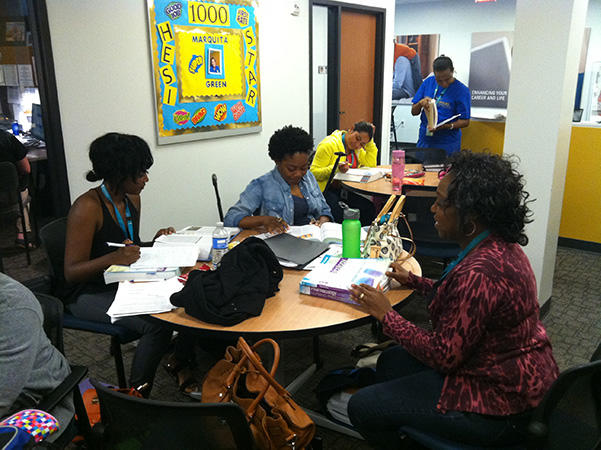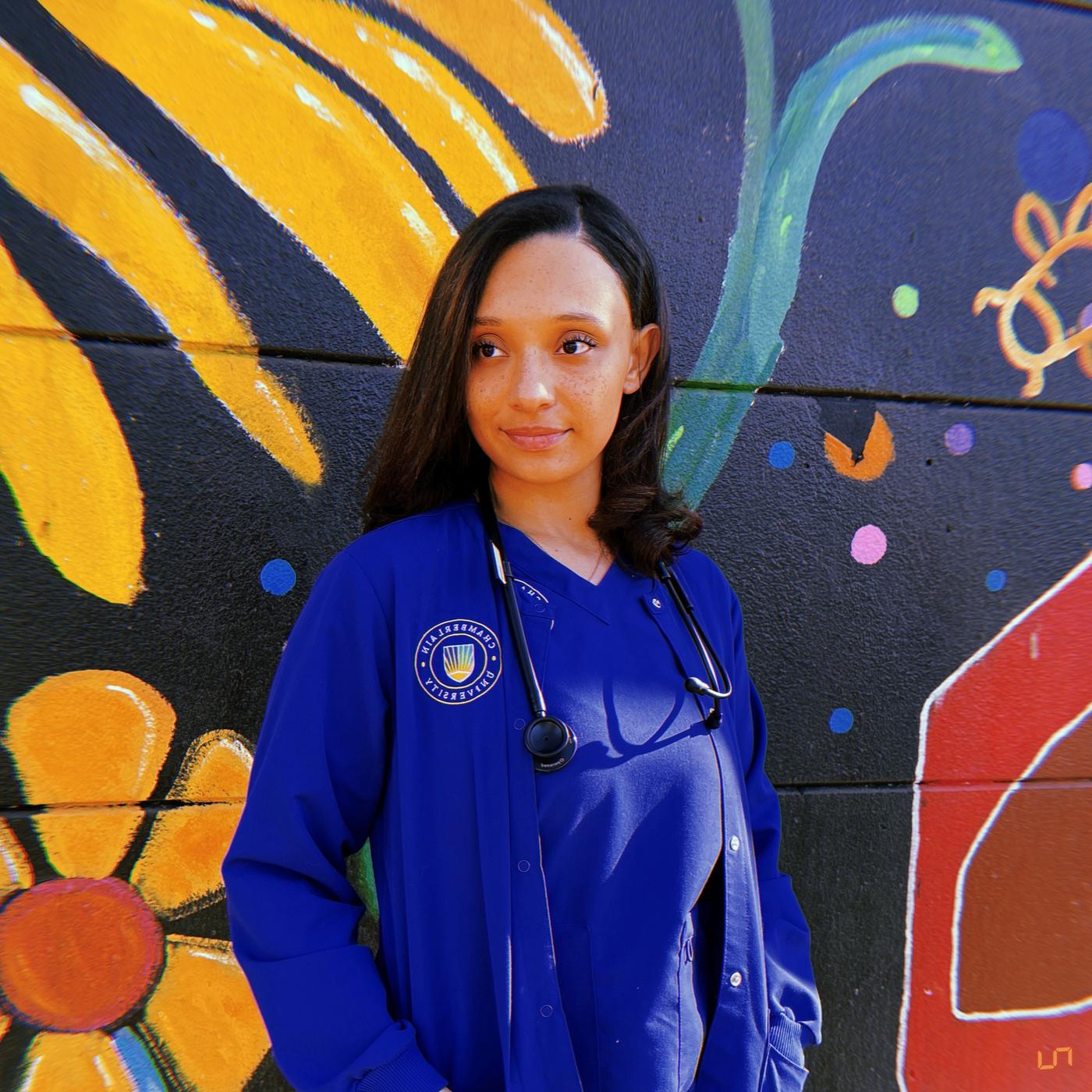Featured
Tags
Share
- Home / Blog / Campus News / Nurse, Leader, Advocate for Change
Nurse, Leader, Advocate for Change

Rachel Anderson, MSN, RN (BSN’12, MSN’13) has risen from LPN to director of the Mercy Center for Rehabilitative Medicine in Des Moines, Iowa. She’s also gone from being a critically injured patient to serving as an advocate for healthcare policy.
Rachel’s interest in nursing came from her own experience. As a freshman in college, she was in a terrible car accident.
“I was in the hospital for three months, and then had another three months of outpatient rehabilitation,” she said. “After everything, I decided that I wanted to be a nurse and work with individuals who are going through what I’d been through.”
She earned an associate degree in nursing and began working in acute rehab units. As her career progressed, her dedication to her specialty – and specifically to brain injury rehabilitation – grew.
“Working at the bedside is rewarding, but I knew I had more to offer. I wanted to get my bachelor’s at least and probably my master’s.”
In 2012, Rachel completed her first step on that journey – earning her bachelor’s degree through Chamberlain’s RN-BSN degree completion option.
“Then, I heard about Chamberlain’s MSN Healthcare Policy specialty track. I thought it was perfect because in working with brain injury and acute rehab over the years, I’ve seen how lengths of stay in the hospital are getting shorter,” she explained.
“There are larger gaps of time between when patients leave our doors and when they get set up with services out in the community, or when they are able to do things for themselves. I wanted to help change that.”
Throughout the MSN program, Rachel focused on brain injury policy at the local level, but she also benefitted from seeing the big picture.
“The globalization course [NR-553 Global Health] helped me see that this is actually a worldwide issue. It helped me to see how I can go about changing the current status – how I have to get everyone’s buy-in, and speak to all the stakeholders’ concerns when they get to talking about policy and change.”
As part of the MSN program, she completed a practicum with an Iowa-based brain injury advocacy group. She drafted a policy on brain injury that may be considered by legislators later this year.
“The policy I drafted is based on current evidence and best practice as well as the fiscal component that the legislators are most concerned about. It’s a financially responsible way of offering the best care and services for these individuals to help them recover.”
Rachel explained that this inclusive, collaborative approach helps not only with legislative work, but also in her current role at the hospital. As she works to build relationships between trauma and acute teams, she brings the skills that she learned during her MSN studies.
“Even on a nursing level, when you change policy, everybody has to be on the same page,” she said. “Now I’m able to speak to that and say, ‘This is how this change is going to benefit you.’”
By Danielle Logacho
More from Campus News
Request More Information
To receive the Chamberlain University Program Guide, including associated career paths, please select a program of study.






